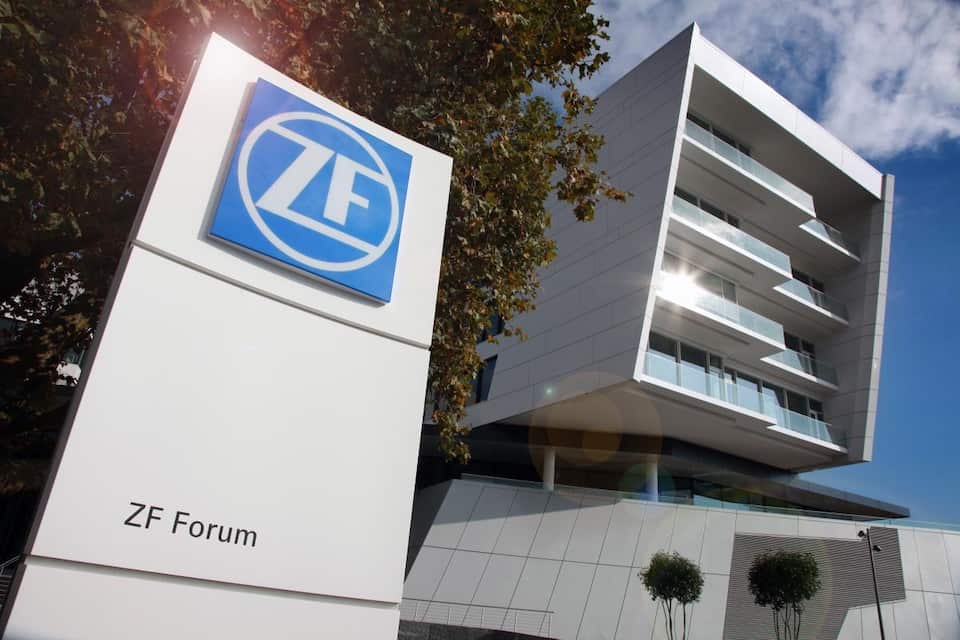Defective TRW Crash Sensors May Cause Seat Belt and Airbag Failure
- Excess voltage in ZF-TRW airbag control units can disable the airbags and seat belt pretensioners.
- The problem is believed to be responsible for as many as 8 deaths.
- The National Highway Traffic Safety Administration (NHTSA) upgraded their investigation into the issue in 2019.

There's growing concern that some sort of electrical over stress is messing with airbag control units (ACU) in certain Toyota vehicles. ACUs are designed to sense a vehicle crash. An application specific integrated circuit (ASIC) within the ACU pulls in electrical signals from crash sensors located throughout the vehicle. When a crash is detected, the ACU determines which airbags need to be deployed and when to activate the seat belt pretensioners.
ZF-TRW control units were manufactured without circuit-protecting diodes. When the ASIC is supplied with too much current or voltage, it’ll shut down the ACU and, in turn, disable the airbags and pretensioners.
At this time the problem is believed to be responsible for as many as eight deaths.
One Step Away from a Recall ∞
The National Highway Traffic Safety Administration (NHTSA) has been investigating these ACUs since March 2018. The original investigation opened following claims that airbags hadn’t deployed during frontal crashes with some Hyundai and Kia vehicles.
Both Hyundai and Kia have issued recalls related to the ACUs.
Hyundai told the Office of Defects Investigation (ODI) that their research revealed the airbags were failing.
”…post-collision inspections of the airbag control units (ACUs) showing that an electrical over stress condition (EOS) of an ACU electronic component occurred in three of the crashes, and that the fourth ACU is under evaluation for the same concern.”
The investigation has been upgraded ∞
In April 2019, NHTSA upgraded their investigation to an engineering analysis. This came after two major crashes involving Toyota Corollas where the airbags didn’t deploy. There was one fatality.
An "engineering analysis" is the final step before a recall, but does not always mean that will be ordered.
Toyota Vehicles Under Investigation ∞
| Make | Model | Years |
|---|---|---|
| Toyota | Avalon | 2012-2018 |
| Corolla | 2011-2019 | |
| Sequoia | 2012-2017 | |
| Tacoma | 2012-2019 | |
| Tundra | 2012-2017 |
Class-Action Lawsuit ∞
Attorneys with Gibbs Law Group LLP are investigating a TRW airbag module class action lawsuit after federal investigators expanded their investigation of a potential defect in airbag control units (ACUs) manufactured by TRW.
If you own one of these vehicles, the class action attorneys at Gibbs Law Group would like to speak with you.
Generations Where This Problem Has Been Reported
This problem has popped up in the following Toyota generations.
Most years within a generation share the same parts and manufacturing process. You can also expect them to share the same problems. So while it may not be a problem in every year yet, it's worth looking out for.
3rd Generation Avalon
- Years
- 2005–2012
- Reliability
- 63rd out of 81
- PainRank™
- 10.34
- Complaints
- 405
4th Generation Avalon
- Years
- 2013–2018
- Reliability
- 57th out of 81
- PainRank™
- 8.95
- Complaints
- 89
10th Generation Corolla
- Years
- 2007–2013
- Reliability
- 73rd out of 81
- PainRank™
- 21.84
- Complaints
- 550
11th Generation Corolla
- Years
- 2014–2019
- Reliability
- 67th out of 81
- PainRank™
- 13.64
- Complaints
- 205
2nd Generation Sequoia
- Years
- 2008–2020
- Reliability
- 29th out of 81
- PainRank™
- 1.53
- Complaints
- 38
2nd Generation Tacoma
- Years
- 2005–2015
- Reliability
- 72nd out of 81
- PainRank™
- 20.75
- Complaints
- 631
2nd Generation Tundra
- Years
- 2007–2021
- Reliability
- 56th out of 81
- PainRank™
- 8.92
- Complaints
- 268